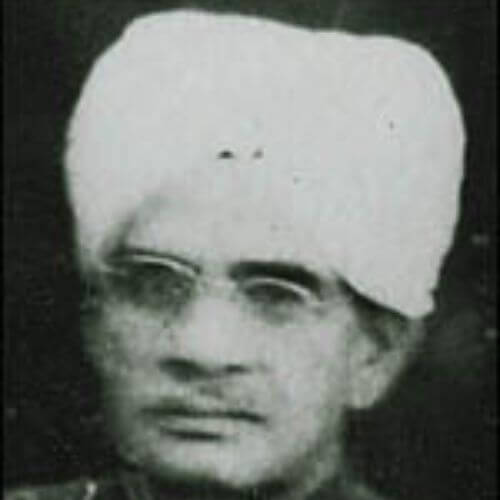Early Life
Bakshi Tek Chand was born on 26 August 1883 in Nurpur, Kangra district, situated in present day Himachal Pradesh. His schooling was spread across the Municipal Board School, Nurpur, Mission School, Dharamsala, and D.A.V High School, Lahore. He did his LL.B at University Law College Lahore. Soon after, he began legal practice at the Lahore High Court. He would end up becoming a Judge and Chief Justice of the Lahore High Court.
Role in India’s Independence Movement:
Chand’s association with the Congress began in the early 1900s. In 1919, he was appointed as the Secretary of the Punjab Pradesh Congress Committee for a one-year term. Half a decade later, he entered the Punjab Legislative Council for the first time.
He had little to no role in the various Congress movements like Satyagraha and Civil Disobedience Movements. This is not a surprise as he was a High Court Judge for most of his career. His political career was rather limited: unlike many other Constituent Assembly members, he was not what you would consider a full-fledged Congressman.
Chand played a key role in public life during partition. He assisted the famous jurist MC Setalvad in presenting the Congress’ position on how Punjab should be split between India and Pakistan. When partition and its accompanying violence and refugee crisis was underway, Chand was appointed to the 1947 Punjab Riot Sufferers Relief Committee to deal with the situation.
Many important health and educational institutions had Chand on their boards. Some of the positions he held included: Secretary and President, D.A.V. College, President, Punjab Medical Education and Relief Society, Trustee, Naraindass Moolchand Hospital for Children and Chairman, Punjab Engineering Education and Research Society.
Contribution to Constitution Making:
Chand was elected from East Punjab on a Congress Party ticket. He actively participated in the Constituent Assembly Debates and on some occasions his amendments and proposals were accepted by the Assembly. He spoke on issues relating to personal liberty, preventive detention and the separation of powers and more.
Later Contributions:
In 1949 Bakshi Tek Chand was appointed as the Chairman of the newly constituted Patents Enquiry Committee set up by the Government of India. This Committee aimed to examine India’s existing patent system and reform it. The Committee produced its landmark report in 1950.
- In an impassioned speech, Chand supported Ambedkar’s proposal to add a provision in the Constitution that directed the State to ‘take steps to separate the judiciary from the executive in the public services of the State’. He reminded the Assembly that such a proposal had been on the agenda of the Congress Party for decades. He felt that the provision ensured the ‘free administration of justice’.
- He proposed an amendment that allowed Parliament to pass laws that empowered the Supreme Court to issue Writs that went beyond those mentioned in the Draft Constitution.
- He was an ardent critic of the Draft Constitution’s preventive detention provisions and proposed various safeguards which were accepted by the Assembly.
- Founding Fathers (The Tribune, 2000)
- Who’s Who 1950 (Parliament of India)

